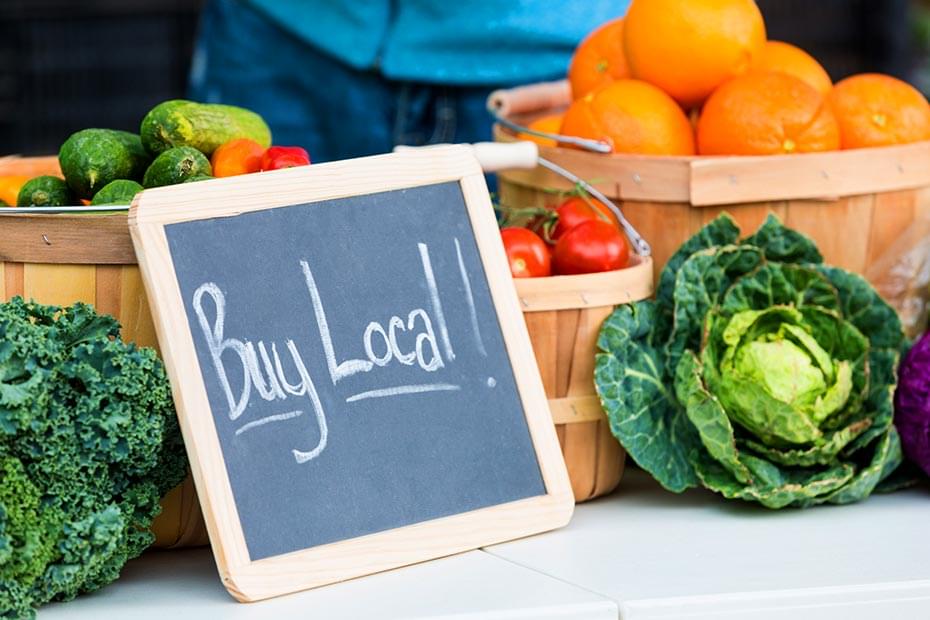Published November 24, 2016 • 4 Min Read
“If you don’t like a company’s policies, not spending money there is the only effective way to bring about change. It’s called voting with your wallet,” said Talha Ahmed, 30, a marketing employee in Vancouver.
Ahmed is referring to social consumerism, which is rising in popularity each year around the globe. People of all ages are choosing products and services that are produced responsibly. Of course produced responsibly means something different to every person, but generally it encompasses a variety of issues such as social causes (equal pay) or environmental causes (responsible farming practices). Consumers reward socially responsible companies by purchasing products and subsequently increasing sales, meanwhile less responsible companies suffer via consumer boycotts.
According to the Nielsen study, Green Generation: Millennials Say Sustainability Is A Shopping Priority , Ahmed has a similar attitude to many of his 34-year-old and younger counterparts, with almost three-out-of-four millennial respondents claiming that they are willing to pay extra for sustainable offerings.
Moreover, 72 percent of those 20-years-old and younger are willing to dish out extra money for products and companies committed to positive social and environmental practices; whereas 51 percent of baby boomers (50 to 64-years-old) are committed to doing the same.
The Top Five Drivers of Sustainability Purchasing:
- Products from trustworthy companies/brands
- Health/wellness benefits from products
- Natural and/or organic ingredients that products are made/sourced from
- Company and subsequently products are known for being environmentally friendly
- Commitment to social value is a key driver for company
Many consumers consider themselves social consumers like Ahmed. But is voting with your wallet effective? “Absolutely,” he said. “Companies operate in the pursuit of maximizing profit. It is the one incentive which drives decisions in the boardroom.”
Canadians Take a Stand
Lauren Stasila, 31, lives in Vancouver and is committed to buying local food. “It does make a difference. With so many Canadians committed to the cause I’ve noticed an increase in local foods offered at bigger chain grocery stores.”
Stasila believes food that comes from local farms is better for the environment because it doesn’t travel as far. This reduces emissions used in transportation and financially supports local farmers and strengthens sustainable farming.
Subsequently, Stasila’s reasoning follows the general idea surrounding social consumerism: consumers needs are met, businesses achieve profitability and a desired social issue is positively affected.
Companies Take Note
Companies seem to have taken notice of this movement that empowers the consumer. For example, Royal Bank of Canada rolled out the RBC Social Finance Initiative, which is designed to ignite the growth of social finance in Canada.
The initiative supports businesses that are looking to make positive contributions within their community. Moreover, this initiative highlights the opportunity for other companies and consumers to invest in businesses that deliver social, environmental and financial returns. RBC has a $10 million pool of capital dedicated to investing in for-profit businesses tackling social or environmental challenges, among other opportunities.
What You Can Do To Help
Canadians are given the opportunity every single day to make a change. Every dollar consumers spend equates to a decision regarding the products and companies that we support. Therefore, do your research and determine what causes are most important to you. If local food isn’t a priority than consider clothing. According to the Danish Fashion Institute
Fashion is one of the most polluting industries in the world, second only to oil in terms of its environmental impact. 25% of chemicals produced worldwide are used for textiles and the industry is often noted as the number two polluter of clean water – after agriculture.
If that statement has more of an impact on you than supporting local food then consider buying ethical clothing. The objective is to find something you’re passionate about to be able to participate in this movement.
As increased awareness surrounds social consumerism more Canadians are bound to jump on board and engage, especially the younger generations who are vocal supporters of social and environmental causes. But remember that actions don’t have to be monumental. It can be something simple like choosing a locally grown apple at the grocery store — seems like a small step, but if more of us commit to doing it — it’ll make a world of difference.This article is intended as general information only and is not to be relied upon as constituting legal, financial or other professional advice. A professional advisor should be consulted regarding your specific situation. Information presented is believed to be factual and up-to-date but we do not guarantee its accuracy and it should not be regarded as a complete analysis of the subjects discussed. All expressions of opinion reflect the judgment of the authors as of the date of publication and are subject to change. No endorsement of any third parties or their advice, opinions, information, products or services is expressly given or implied by Royal Bank of Canada or any of its affiliates.
Share This Article






